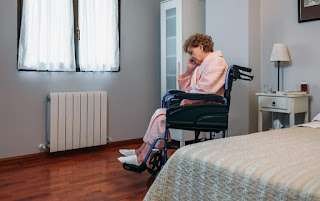 |
| The 1.3 million Americans under guardianship need more protection by the courts, the Senate Aging Committee asserts in a new report. Photo credit: Getty |
The courts are failing to protect the 1.3 million Americans with $50 billion in assets under guardianship, the Senate Special Committee on Aging concludes in a new report. “Unscrupulous guardians acting with little oversight have used guardianship proceedings to obtain control of vulnerable individuals and have then used that control to liquidate assets and savings for their own personal benefit,” the Committee, led by Maine Senator Susan Collins, asserts in the study, which took a year to complete.
State courts have few standards on who is allowed to be a guardian while criminal background checks are lacking, the study found. Greater oversight of guardians and guardianship arrangements, including mandatory criminal background checks, would help protect against abuse, neglect, and exploitation, the study concludes.
In addition to calling for greater care in the selection and monitoring of guardians, the Senate report urges judges to consider less restrictive forms of assistance than traditional guardianship for many who have been placed under that form of control because of a disability, injury or dementia.
Those options include a partial guardianship limited to only some aspects of daily living and supported decision-making. Under supported decision making, the person is given the support and information needed to make an informed decision on their own, rather than having a guardian exercise control.
In some instances, people who have been put under guardianship have recovered to the point they should be removed from guardianship and have their freedom to make decisions restored, the study notes. However, this rarely occurs, the researchers found.
The Aging Committee report calls full guardianship one of the most restrictive forms of taking away an individual’s control of their lives that there is outside of institutionalization of the mentally ill and imprisonment.
“When a full guardianship order is imposed, the protected individual loses most of his or her basic rights, including the right to make medical decisions, to buy or sell property, to manage their own money, to marry, to choose where to live, or to choose with whom to associate,” the study explains.
Family members who are guardians frequently aren’t familiar with the duties and obligations expected of them and should be trained on the responsibilities, the study recommends.
The report praises most guardians as selfless, dedicated individuals who play an important role in safeguarding the persons under their care. But it cautions that those who abuse the role can do overwhelming harm.
As an example, the study pointed out a professional guardian and her staff who were charged this year in Nevada with in excess of 200 felony counts for allegedly taking advantage of and financially exploiting more than 150 persons under their care.
In North Carolina, two individuals lost hundreds of thousands of dollars through exploitation by a family member who served as their guardian.
Full Article & Source:
Courts Fail To Protect 1.3 Million Vulnerable Americans In Guardianship Charges Senate Report

No comments:
Post a Comment